#mrs. bennet
Explore tagged Tumblr posts
Text
For the past several years (and perhaps longer) in the P&P fandom I've seen a lot of people who want to rehabilitate Mrs. Bennet: like, sure, she's uncouth and seems greedy, but it's because she cares so much about her daughters' futures; her situation is actually really stressful and uncertain and she's powerless to change it and her husband makes fun of her, and so it's natural that it would cause her to be anxious all the time; maybe she doesn't have the intelligence or social awareness to understand that her behaviour is actually harming her daughters' prospects, but at least her heart is in the right place.
I'm usually not the type of person who argues that fandom is actually being too nice to a female character, but in this case I don't buy the counter-narrative (which I think is popular enough at this point to be fanon / a narrative in itself) about Mrs. Bennet.
For one thing, she was never really powerless in this situation. These people are rich even for gentry. Mr. Bennet's income was always good, at 2,000 pounds per annum (even though I can't believe he isn't neglecting some practices that could raise it higher). Mrs. Bennet had 4,000 pounds from her parents and a further 1,000 from Mr. Bennet. Invested in the 4 per cents (for example), this is 200 pounds per year in pin money that Mrs. Bennet could spend without touching the principle of her dowry, and without affecting Mr. Bennet's income. This is more than some people's entire yearly incomes.
The picture of Mr. and Mrs. Bennet that we get in P&P is not of people who are helpless against their circumstances, but of people who are extraordinarily neglectful. We're told that:
Mr. Bennet had very often wished, before this period of his life, that, instead of spending his whole income, he had laid by an annual sum, for the better provision of his children, and of his wife, if she survived him. [...] When first Mr. Bennet had married, economy was held to be perfectly useless; for, of course, they were to have a son. This son was to join in cutting off the entail, as soon as he should be of age, and the widow and younger children would by that means be provided for. Five daughters successively entered the world, but yet the son was to come; and Mrs. Bennet, for many years after Lydia’s birth, had been certain that he would. This event had at last been despaired of, but it was then too late to be saving. Mrs. Bennet had no turn for economy; and her husband’s love of independence had alone prevented their exceeding their income.
We also know that the "continual presents in money which passed to [Lydia] through her mother’s hands," plus her allowance and food, amount to about 90 pounds per year. Rather than saving up from the beginning in case the entail is not broken, rather than beginning to save once it's clear a son will not arrive, rather than making Jane's dowry the full 5,000 from her mother (which would be something) and saving up for the younger girls' dowries thereafter—which is what would be typical, and that's why Lady Catherine was so shocked that all the girls were out at once—Mrs. Bennet's housekeeping, dress, the girls' allowance, presents of money over and above their allowance, plus whatever Mr. Bennet is spending money on (and other expenses relating to servants, carriages, maintenance &c. which are unavoidable), add up to their entire income. The only reason why Mrs. Bennet doesn't overspend even that is that that's where Mr. Bennet puts his foot down.
Mrs. Bennet is actively harming her daughters' prospects, not even of marriage, but of living respectably if they don't marry, because she doesn't have the temperance not to spend all of the income that is allotted to her. It is the role of the woman in a marriage to take charge of the housekeeping, servants, cooking, furniture, and all expenses relating thereto (plus certain attentions to her tenants and any living in genteel poverty in the area, though presumably this will depend on her income and whether there's a parish church with a parson's wife who's doing some of these things). She's an adult who should be competent to manage these things in a reasoned way without needing to be dictated to.
It is supposed to be the role of the woman in a marriage to take charge of her daughters' education—and yet Mrs. Bennet did not hire a governess, and Elizabeth says that she didn't spend much time teaching her daughters anything (it's not clear to what degree she's educated herself). Granted, the girls did have masters—but, from the sounds of things, that was only if they requested them. No one was required to learn much of anything, which will probably further harm the marriage prospects of the girls who "chose to be idle."
I think the "point" of Mrs. Bennet is that she is one half of one type of bad marriage which the novel illustrates, in contrast with the Gardiners' marriage. These marriages are two possible models for the Bennet daughters to look to. At one point, Elizabeth's prospective marriage is explicitly compared to her parents', with her in the role of her father: Mr. Bennet says "My child, let me not have the grief of seeing you unable to respect your partner in life" (emphasis original).
We might wonder whether Elizabeth saw herself potentially in the role of her father, in a marriage that was very intellectually unequal, when she rejected Mr. Collins; or whether she also saw herself in the role of her mother, married to a man who insults and doesn't respect her, when she rejected Mr. Darcy. Ultimately, she accepts Mr. Darcy after she realises that he is nothing like her father; that he is diligent in attending to his responsibilities, and that he does evidently respect her mind.
This isn't me defending Mr. Bennet, who is also a bad parent and a bad spouse. I do, however, find it a little disturbing when people suggest that Mr. Bennet is at fault for not controlling or curtailing his wife. His wife is a grown woman. Surely we don't actually believe that a situation where a man is legally in complete control over his wife, merely because he is a man and she is a woman, is in any way natural, moral, or just? (This also goes for people who suggest that Mr. Bingley needs to get his sister 'in line' 😬😬😬.)
Mrs. Bennet should be competent to manage her household and her daughters. Given that she's not, yes, Mr. Bennet, according to Georgian and Victorian ideas of the role of a man in a marriage, "should" have stepped in and started dictating to her. But I don't really think that's what Austen is suggesting went wrong here. The models of good marriages we have—the Gardiners, the Bingleys and Darcys after their weddings—are all ones in which the women were basically sensible people to begin with. In the latter two cases, we are told of particular ways in which the men stand to benefit from some mental quality of their future spouse (Elizabeth's good humour and ease in company; Jane's steadiness and determination).
The ideal which some Georgians had of a husband's role being to shape his wife's intellect doesn't seem to be what's being advocated here. If Mr. Bennet made a mistake, it was in marrying a silly, selfish, ill-tempered woman to begin with, not in failing to browbeat her into submission once he found out that she was silly, selfish, and ill-tempered. The idea is that you should choose your spouse carefully. But that message doesn't work if Mrs. Bennet is just a woman in a difficult situation who has her heart in the right place.
3K notes
·
View notes
Text
Please, for the love of all that is holy, stop saying that Mrs. Bennet is the only one "taking the situation seriously."
She is not.
Screaming about a problem doesn't mean you are taking it seriously. If she was taking it seriously, she'd have given her girls a proper education and advocated for saving for dowries. Her little schemes around Jane don't count as taking it seriously.
No one is taking the situation seriously.
#mrs. bennet#screaming into the void#pride & prejudice#also with five girls a governess would have been so cost effective#and they were cheap#they easily could have afforded it
1K notes
·
View notes
Text
So I told a friend about Splinter from Rise of The Teenage Mutant Ninja Turtles and her response was "Huh, so he's like Mrs. Bennet (from Pride and Prejudice) with a black belt." And that inspired this blip here:

Think about his poor nerves, April!
#Shadowpuppetteer#fanart#fan art#text post#teenage mutant ninja turtles#rise of the teenage mutant ninja turtles#tmnt#rottmnt#Splinter#April#april o'neil#hamato yoshi#Pride and Prejudice#Mrs. Bennet#Splinter is basically Mrs. Bennet with a black belt#misquotes#misquoting Jane Austen#Jane Austen
238 notes
·
View notes
Text
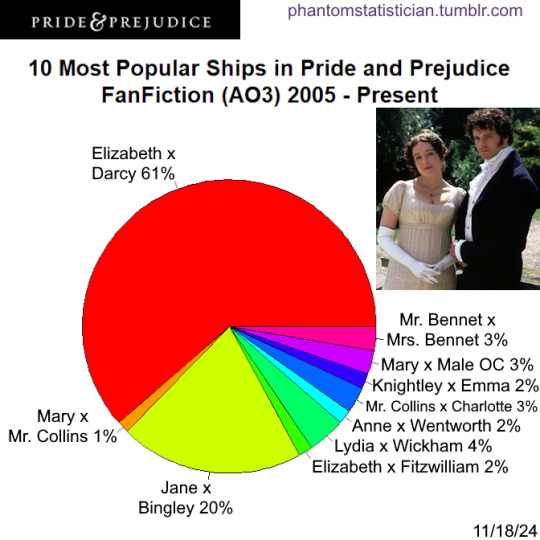
Fandom: Pride and Prejudice - Jane Austen
Sample Size: 3,122 stories
Source: AO3
#elizabeth bennet#fitzwilliam darcy#jane bennet#charles bingley#lydia bennet#george wickham#william collins#charlotte lucas#mary bennet#mr. bennet#mrs. bennet#george knightley#emma woodhouse#anne elliot#frederick wentworth#colonel fitzwilliam#pride and prejudice#fanfiction#ao3#statistics#phantom statistician#elizabethdarcy#dizzie
121 notes
·
View notes
Text


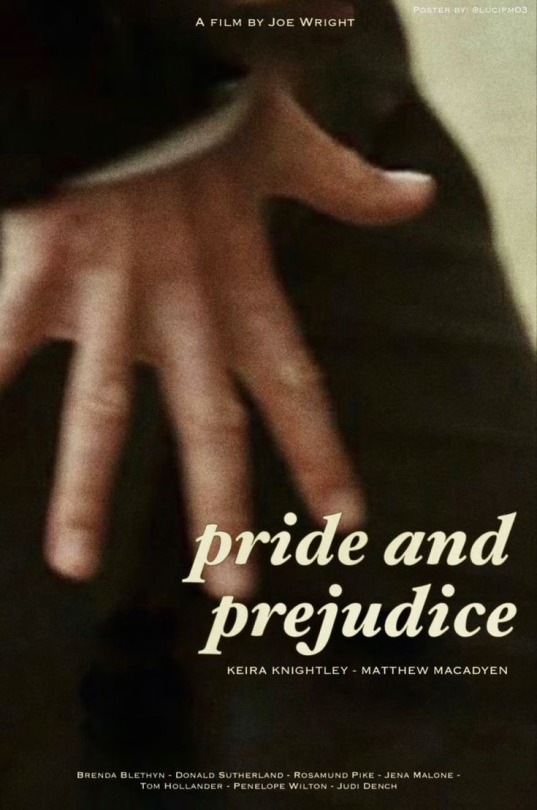
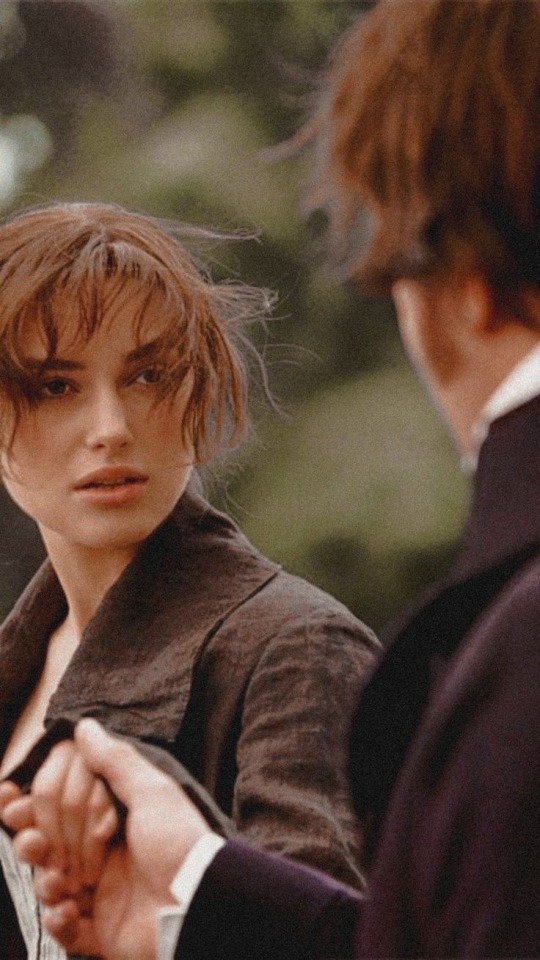
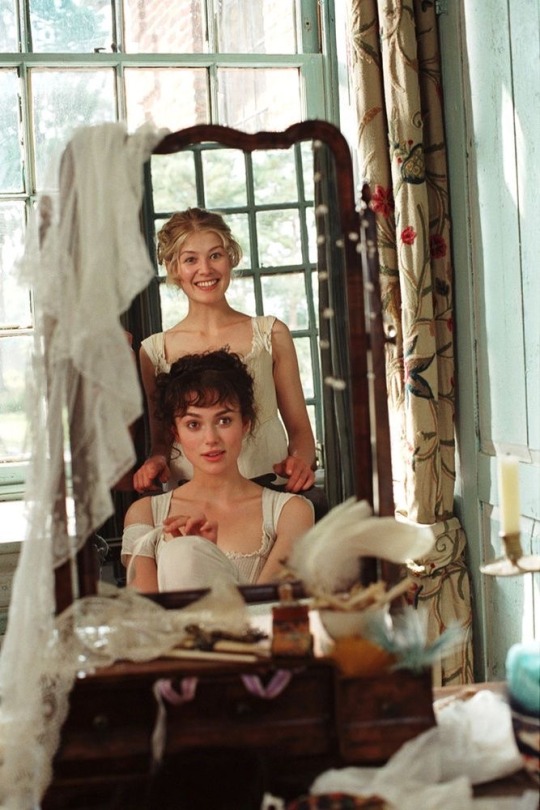
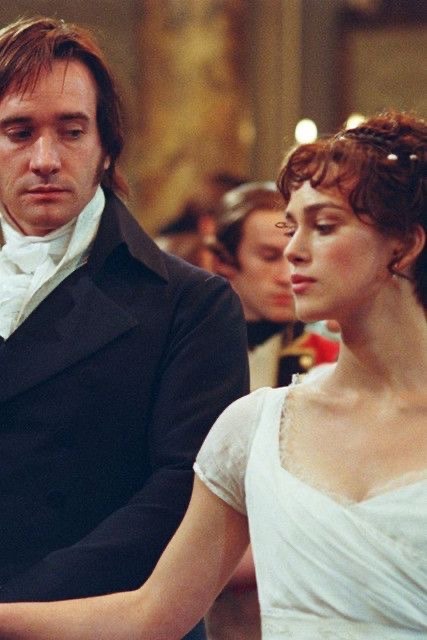
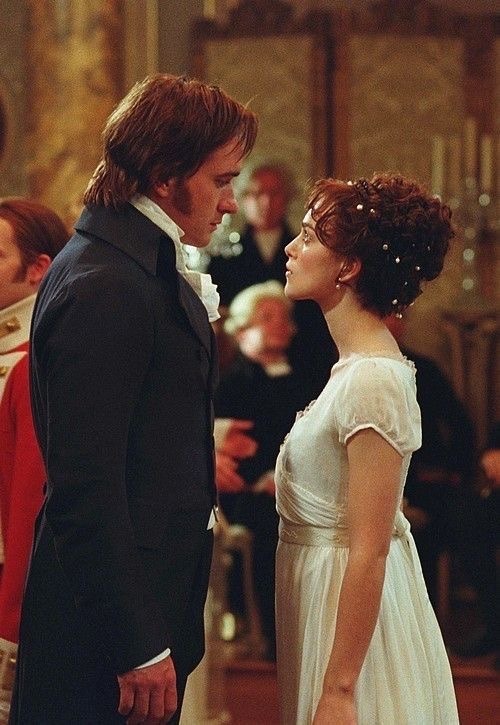

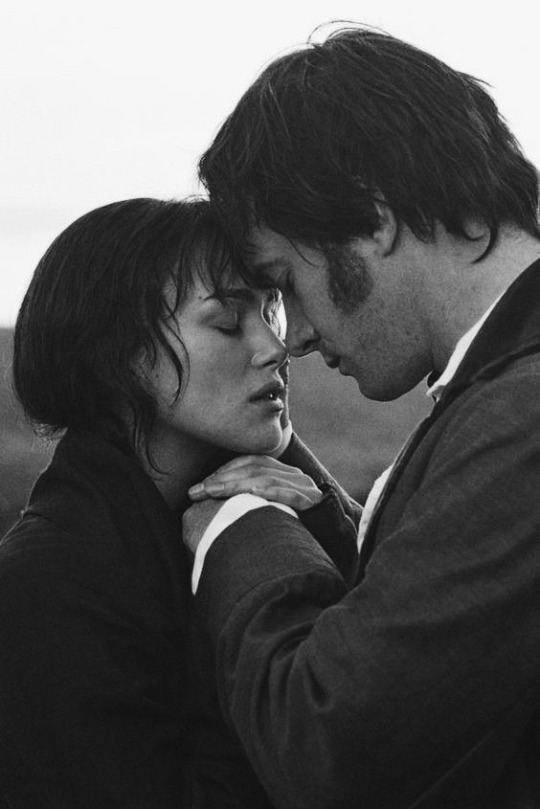
#pride and prejudice#pride and predjudice 2005#mrs.bennet’ın portresi#mrs. bennet#mr. darcy#fitzwilliam darcy#elizabeth bennet#jane austen#jane bennet#mr. bingley#mathew macfadyen#keira knightley#james mcavoy#becoming jane#anne hathaway#film photography#filmedit#romantic#romcom#vintage#england#ingiltere#united kingdom#uk#filmler#kitaplar#kitap#kitap alintilari#film
302 notes
·
View notes
Text

#nymphpens#dark academia#poets on tumblr#dead poets society#relatable#tumblr text post#classic literature#jane austen#pride and prejudice#classic literature memes#arrested development#arrested development memes#arrested development x pride and prejudice#pride and prejudice memes#elizabeth bennet#mary bennet#mr. bennet#mrs. bennet#arrested development x classic literature#literature memes#literary memes
228 notes
·
View notes
Text

22 notes
·
View notes
Text

top lydia bennet moment
#lydia bennet#pride and prejudice#jane austen#meme#book thoughts#the bennets#mrs. bennet#book memes#excerpts
148 notes
·
View notes
Text

25 notes
·
View notes
Text
Since @bethanydelleman has been posting about blatantly wrong statements that have been made about Pride and Prejudice (by one specific author, but that author isn't the only one who does it), I thought I would share a minor one I once read.
I once came across an online discussion of Mrs. Bennet, which (rightly) criticized the tenancy of fanfic to portray her as having abused Elizabeth all her life.
Amid the accurate arguments that just because Elizabeth is Mrs. Bennet's least favorite daughter doesn't mean she abuses her, there was one inaccurate claim. Someone wrote that we shouldn't assume Elizabeth is really Mrs. Bennet's least favorite daughter, per se, because Mrs, Bennet "only says it in a tantrum" after Elizabeth rejects Mr. Collins' proposal.
Except that's not true.
It's not Mrs. Bennet herself who says calls Elizabeth her least favorite daughter; it's the omniscient narrator. And not during Mrs. Bennet's anger about the rejected proposal either. On the contrary, the narrator says it when Mrs. Bennet happily thinks Elizabeth is going to marry Mr. Collins, as an explanation of why she was less excited about that pending marriage than about Jane and Bingley's.
Elizabeth was the least dear to her of all her children; and though the man and the match were quite good enough for her, the worth of each was eclipsed by Mr. Bingley and Netherfield.
While it certainly doesn't make Mrs. Bennet an abusive mother, the fact that Elizabeth is her least favorite daughter is canon.
That passage above might also undermine the popular claim that Mrs. Bennet is only being practical and trying to secure her own future and her daughters'. If this were true, then wouldn't Elizabeth's apparent pending marriage to Mr. Collins be her greatest joy, since it would ensure that she could still live at Longbourne with them after Mr. Bennet dies? Yet her response is effectively just "Meh... that's nice... but Jane and Bingley!" She doesn't seem to care much about it until Elizabeth makes it clear that it won't happen. I'm very much a proponent of "Both Bennet parents are bad in different ways," and just because Mrs. Bennet has some valid concerns and is treated badly by her husband doesn't mean she deserves much defense.
114 notes
·
View notes
Text
Cooking White Soup with Mrs.Bennet
Ingredients:
1 whole chicken or veal knuckle (about 3–4 lbs)
2 quarts water
1 cup blanched almonds
1 cup cream
4 egg yolks
2 slices of white bread (crusts removed)
1 onion, peeled and halved
2–3 cloves
1 bay leaf
A pinch of mace or nutmeg
Salt and pepper to taste
Before we get to the delightful business of today’s instructions, I must unburden myself of the most vexing news! Upon hearing of Mr. Darcy’s interference in my dear Jane’s happiness with Mr. Bingley, I am quite beside myself with indignation. Wicked, wicked man! He is, without a doubt, the most disagreeable man that ever was born. Why, he has no consideration for the feelings of others! To think he would come between such a perfect match, it is truly beyond endurance.
But let us set aside this dreadful business for the moment and turn our attention to something far more agreeable. Now, here is how you prepare…
Instructions:
Prepare the Stock: Place the chicken or veal in a large pot with the water, onion (studded with cloves), bay leaf, and a pinch of salt. Bring to a boil, then reduce to a simmer. Skim off any foam and cook gently for 2–3 hours until the meat is tender and the broth is flavorful.
Strain the Stock: Remove the meat and aromatics. Strain the broth through a fine sieve or muslin cloth to ensure it’s clear. Return the strained stock to the pot.
Prepare the Almond Paste: Grind the blanched almonds into a fine paste using a mortar and pestle or food processor. Add a little of the hot stock to thin it, then stir it back into the pot.
Thicken the Soup: Tear the bread into small pieces and soak it in a little hot stock. Once softened, mash or blend it into a smooth paste, then stir into the soup to thicken.
Enrich the Soup: In a bowl, whisk together the egg yolks and cream. Temper the mixture by slowly adding a ladle of hot stock while whisking, then stir it into the pot. Be careful not to let the soup boil, as this will curdle the eggs.
Season and Serve: Add a pinch of mace or nutmeg, then season to taste with salt and pepper. Warm gently, stirring until thickened. Serve immediately in bowls or cups for an authentic Regency touch.

Did You Know?
White Soup was a popular dish in 18th-century and early 19th-century England, especially among the upper class. Originating from French culinary traditions, it was made with veal or chicken stock, breadcrumbs or almonds, cream, and egg yolks, with a touch of spice like nutmeg or mace. Its pale, creamy appearance made it a symbol of elegance, often served at balls and formal events.
Famously mentioned in Jane Austen’s Pride and Prejudice, it highlights the sophistication of Regency society. Though it fell out of favor in the Victorian era, White Soup remains a hallmark of historical English cuisine.
#baking#cooking#drama#jane austen#regency era#mrs. bennet#pride and prejudice#pride and predjudice 2005#pride and predjudice 1995#Bennet Family
15 notes
·
View notes
Text
Mrs. Bennet being like, "Look, I've got five daughters, take your pick. It's better to have a little selection. We've got Super Hot and Modest, not your taste? How about... *sigh* Pretty and Kind of Mouthy? Next is the Most Accomplished Girl in Meryton, then um... Kitty, and lastly, the Most Lively Girl You'll Ever Meet. Honestly, if one of them doesn't suit you, in my opinion, the problem isn't my daughters."
#mrs. bennet#gotta have some slection#they are all so different take your pick!#pride & prejudice#jane austen
464 notes
·
View notes
Text
People who think Violet Bridgerton is chaotic should really watch pride and prejudice 2005 and meet Mrs. Bennet
24 notes
·
View notes
Text
I merged my two brainrots in one meme

#spy x family#pride and prejudice#spy x family meme#pride and prejudice meme#loid forger#mrs. bennet#mrs. bennet's poor nerves are also definitely loid's#I'm so proud of this meme
123 notes
·
View notes
Text
Don’t mind me, just out here creating Jane Austen memes out of Good Omens stills while processing season 2 (Go watch it!). I’m sure Aziraphale would approve.
Pride and Prejudice x Good Omens

Just like Crowley, Elizabeth knows what’s coming, and she wishes she didn’t have to be there.

I wonder what Wickham’s punishment in the Good Omens hell would have looked like.
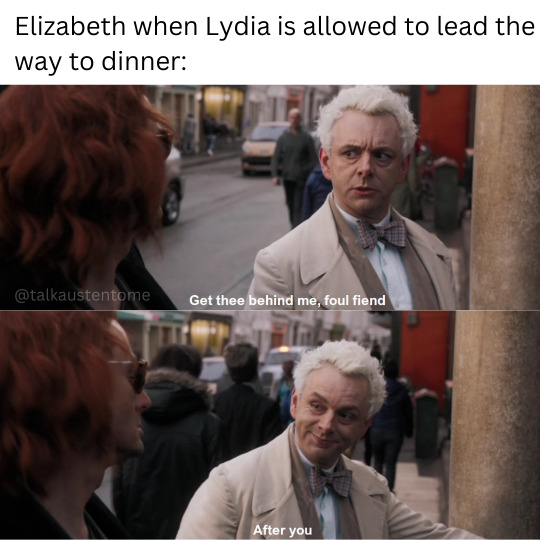
“Ah! Jane, I take your place now, and you must go lower, because I am a married woman.” I kinda love how obnoxious married Lydia is.
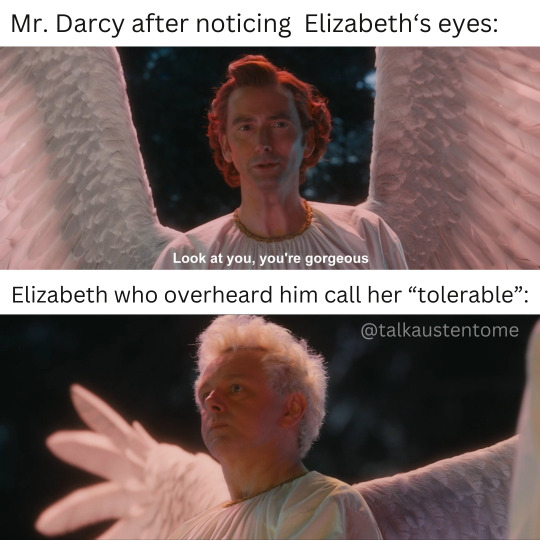
Truly one of my favourite moments in Austen’s novels, and any love story ever, is Mr. Darcy declaring Elizabeth “tolerable” and looking at her again to confirm his original verdict, only to go: “Daaamn. I was wrong.” (Also, the things I’d do to get a version of Darcy that does the Good Omens apology dance for Elizabeth.)

Thankfully, 10k a year helped Mrs. Bennet to change her mind about Darcy again very quickly.

The biggest change I’ve gone through since first getting into Austen was definitely going from loving Mr. Bennet because of his sarcasm to thinking he’s actually kind of awful.

Caroline Bingley, the original pick-me girl?
#There’s more coming (about other Austen novels) but I’ll leave it at that for now#Jane Austen x Good Omens#Jane Austen#Jane Austen meme#jane austen memes#Pride and Prejudice x Good Omens#Pride and Prejudice#Pride and Prejudice Memes#Pride and Prejudice meme#Elizabeth Bennet#Mary Bennet#Mrs Bennet#mrs. bennet#Mr Bennet#Mr. Bennet#Mr. Darcy#Mr Darcy#Caroline Bingley#Lydia Bennet#memes#Good Omens Season 2 Spoilers#Good Omens 2 Spoilers
100 notes
·
View notes
Text
Haven’t read Pride and Prejudice through in a while, maybe this was addressed and I forgot, but is there ever an explanation for why, when Elizabeth rejects Mr. Collins, Mrs. Bennet doesn’t try to pawn him off on one of the other girls?
Mrs. B shielded Jane from Collins despite her being the unmarried and most eligible eldest because she thinks Jane can do better (Bingley) in the immediate future. Why not by that same logic write Elizabeth off as a spinster (which she kind of does anyway when Lizzie’s father steps in and forces Collins to back off) and try pawning it off on the next eldest daughter?
Mrs. Bennet probably wouldn’t do that to one of her favorite daughters, no, she has faith they can do better. But Elizabeth and Mary are not her favorites.
Which brings me to my actual point: obviously Mary and Mr. Collins would not have a happy marriage, because Mr. Collins is the kind of man it’s pretty much impossible to be happy with and Mary certainly isn’t mature enough to do it. But do you think they’d last long enough before realizing they’re incompatible to walk down the aisle? They’ve got surface similarities in their preachiness and attempts to appear intelligent despite their lack thereof.
Not saying I think this should’ve happened, for many reasons starting with Mrs. Bennet was forcing her kids into an absolutely miserable union for her own sake taking a turn at Charlotte Richards and her prospects and ending with Mary being way better off in canon when she waited and had sisters positioned to help her. But still, an interesting what-if, which fandom is meant for.
11 notes
·
View notes